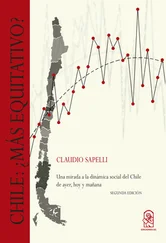Mora sat down in a linen armchair and exhaled. Ginny wouldn’t come—they never came, in the end. A few others had gotten close, of course—Michael’s girl, Dalia, found the island even, but turned away when he broke her heart; he didn’t remember her. Mora tried, once, to choose boys who weren’t loved, who weren’t adored, but they never made good guards. It wasn’t their fault; it was just hard for her to love a boy who wasn’t a challenge. Taking an unhappy, unloved person was so much easier than taking someone like Kai. Perhaps that was why it was so simple for the Fenris to take her, change her.
She’d considered killing her boys’ lovers dozens of times. It would make it easier, but it would also draw so much attention. A trail of missing boys didn’t attract the Fenris—they targeted girls. A trail of heartbroken girls didn’t warrant their attention, either. But a trail of young, dead girls? There was nothing that would attract the Fenris quicker. Mora admired the girls that followed her, sometimes—after all, the boy she loved didn’t track her down, didn’t move heaven and earth to find her fading on the ocean floor—
Perhaps he didn’t love you enough.
She clenched her fists, then reached over to sweep a lamp onto the floor in anger. It crashed, bits of colored glass skittering across the floor. Stop it , she scolded herself. Enough. Mora stomped to the front door and looked out at her storm. The Fenris were her concern at the moment. They were the threat. And they were smart enough to follow Ginny to her.
You’re just a girl, Ginny , Mora thought, looking out at the clouds. You’re like I was, once upon a time. Innocent. Sweet. I don’t want to kill you, but I will if you make me.
CHAPTER TWENTY-FOUR

Kai was the first one to recognize our love for what it was.
We were on the way to school and stopped by a doughnut shop on Ponce. It’s one of those places that attracts all types; blue shirts on their way to the office, the poor who just want an inexpensive breakfast, stoners who have been awake all night, and tired-looking mothers with babies in their arms.
We got up to the counter right as a new batch of doughnuts came out of the kitchen and so, instead of ordering two apiece, Kai ordered a dozen, laughing aloud about how we should race to see who could eat their six fastest.
“Six?” asked a woman to our left. She was tall and blonde, with skin that looked like leather and coral-colored lipstick. “Better watch how you eat now. It’ll catch up to you,” she said, giving me an especially long look.
I made a face at her; she made an ugh noise at me and turned around to place her order (some sort of smoothie and a bagel, neither of which I realized the doughnut shop carried). Kai and I sat down at a table near the back, silently agreeing that we’d skip first period in order to enjoy our feast. We each lifted a doughnut and pretended to toast.
“She’s right, you know,” he said in faux seriousness. “We’re going to end up like those people who get removed from their houses with forklifts, if we keep this up.”
“Not me,” I said. “They’re going to have to just tear my house down around me.”
Kai laughed. “Then we’ll go on a talk show, one of the trashy ones. Where we’re both huge and weird but talk about how we’ve been in love since we were little kids so we don’t care that combined, we weigh as much as an adult elephant.” I choked on a doughnut laughing, and as I regained my composure Kai grew a little quiet, realizing what he’d just said.
“Not in love since we were little kids,” I corrected, and Kai looked down, embarrassed. I continued, “Since we were seven . Seven is just straight up ‘kid.’ Anything under six is ‘little kid.’ ”
He exhaled and grinned. “Oh, I disagree. Under six is baby.”
“It is not! No one remembers when they’re a baby, but I remember life before I was six. Bits and pieces anyway.”
“Fair point. I guess I do, too,” he said, starting on a second doughnut.
“What do you remember?”
“Little things. Nothing important. Going to school, the red lunch box I loved. Oh, and the Easter my cousins came to town. I got into a fistfight with the older one.”
“Who won?”
“She did,” he said. “That’s pretty much all I remember, though, from that age.” Then he shrugged, blushing hard enough that his ears turned red. “There wasn’t much worth remembering before you, Ginny.”
Eventually, I wrap myself in a blanket I find under a seat and fall asleep on Wallace’s floorboards. I expect Flannery to join me at some point, but when I wake up, we’ve parked and she’s sitting on the bench in front of the little table. More impressively, the table is piled high with bags of groceries, a pile of blankets, and clothes from Goodwill. She’s changed, now wearing a long-sleeved T-shirt and jeans that have so few holes, they look strange on her.
“Where did this come from?” I ask, squinting in the sun. It’s got to be early afternoon, maybe even later.
“This? There’s a Goodwill just around the corner.”
“That’s not what I meant,” I say. “Where’d you get the money for all this stuff?”
“Easy,” Flannery says. “There’s some sort of indoor pool-waterslide-thing up the street. Full of tourists—seriously, who needs to swim in November? That’s the whole point of November. You don’t have to swim. But anyway, it was easy. Picking wallets was like picking apples, for fuck’s sake.”
“You stole people’s wallets to buy us clothes?”
“No,” Flannery says, rolling her eyes. “I stole people’s wallets to buy us food. And blankets that don’t have raccoon fur on them. And then I stole us some clothes.”
I frown but don’t protest too much when she hands me something from the grocery bag—beef jerky. It’s not exactly my favorite breakfast item, but I’m definitely not going to be picky at the moment.
“So,” Flannery says once I’ve changed clothes—she greatly overestimated the size of my chest, so my shirt is huge. She’s in the driver’s seat and motions to the radio, which is playing quietly. “They say it’s snowing in Minnesota.”
“Then that’s where we’re headed—”
“And also Illinois and Wisconsin. Which storm is hers?”
I exhale and sit down on one of the seats in the back. “I don’t know. Hers feel different. The cold is… darker.”
“They don’t much report that sort of thing on the weather,” she says drily, and I glare at her.
“Sing the song again?” I ask Flannery. “Just the part about where she lives.”
She sings without hesitation, her voice more elegant than she is.
She lives among the selchs and snow,
she knows her magic well.
She’ll call the very best to her,
The rest she’ll send to hell.
Perhaps hearing the song wasn’t as helpful as I expected.
“Is there a map in here?” I ask, flipping down the visor and finding nothing.
“No,” Flannery says, “but I know where some of the states are.”
“Hang on,” I say, trying not to look piteous. I reach down and grab the cookbook. “There’s a map in here, somewhere….” I flip through the cookbook hurriedly, finally finding the page on the Fenris near the middle.
“Those aren’t the states,” Flannery says, leaning over my shoulder.
“The blue lines are the states, the light ones,” I say, motioning to the faded marks. “The black ones are where the Fenris packs are. Just ignore those; look at the state lines.”
Читать дальше












